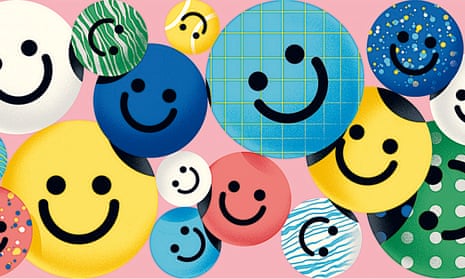For critics of positive thinking like me, as well as for plain old curmudgeons (also like me, to be fair), it’s an awkward truth that an optimistic outlook does seem to lead to a healthier life. Scientists, with their annoying fixation on facts, have published study after study suggesting that an upbeat attitude protects you from cancer, heart disease and stroke. In one big analysis of American women, the most optimistic were 29% less likely to die, during a six-year follow-up, than the least; in another, involving men too, people with positive views of ageing ended up living longer.
At last, though, we pessimists have something to fight back with: a new study in Psychological Science, highlighted on the Research Digest blog, that compared levels of optimism, cholesterol and body weight among people in the US and Japan. It found Americans are much likelier to have healthier cholesterol, and less likely to be overweight, if they’re chipper. But there was no such connection among the Japanese. Whatever explains Japan’s chart-topping life expectancy – lots of fish, a strong tradition of family care for the elderly – it isn’t being really cheerful all the time.
What’s going on? In these studies, it’s notoriously hard to say what’s causing what. (Maybe it’s being healthy that makes you optimistic, not vice versa.) But one plausible explanation for the new finding, which the researchers endorse, is that American optimists are healthier because optimism, in the US, is a strongly reinforced cultural value. You’re supposed to feel happy, and to show it. Whereas in east Asian cultures, as lead researcher Jiah Yoo put it, “people commonly view positive emotions as having dark sides – they are fleeting, may attract unnecessary attention from others, and can be a distraction from focusing on important tasks”.
In other words, maybe it’s not optimism per se, but being in tune with the prevailing culture, that makes American optimists healthier. Remove the cultural pressure to be happy, and pessimists get to have healthy cholesterol levels, too. That also might explain the 2015 finding that happiness doesn’t make British women live longer, either. Say what you like about British culture, but an unrelenting pressure to seem ultra-happy isn’t among its faults.
If I’m honest, though, none of this really proves my point that miserabilism has its upsides. What it implies, more uncomfortably, is that you’re likelier to be happy and healthy if you share the attitudes and culture of the people around you. It’s surely no coincidence that the populations held up as bastions of contentment – notably the Danes, inventors of hygge, and the Japanese, for that matter – tend to be homogenous, rather than diverse. Perhaps the key isn’t their outlook on life, but the fact that everyone they meet shares it?
This isn’t much of a recipe for making more diverse societies happier and healthier. For that, we’ll need to stop chasing the notion that one or another frame of mind is the Best One To Have. Optimism, pessimism, introversion, extraversion – maybe they can all work, except when we insist that everyone makes the same choice.

Comments (…)
Sign in or create your Guardian account to join the discussion